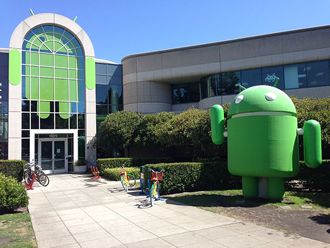 Search engine outfit Google has expanded the number of enterprise mobility management platforms IT managers can use to control Chrome OS devices.
Search engine outfit Google has expanded the number of enterprise mobility management platforms IT managers can use to control Chrome OS devices.
Google announced it is integrating its Chrome OS Enterprise device management suite with four mobility management vendors to offer unified end-point management (UEM) capabilities.
Last year, Google introduced its Chrome Enterprise suite and offered integration with VMware Workspace ONE’s UEM cloud portal, allowing IT shops to manage Chrome OS devices using both native Chrome Enterprise and VMware tools from a single console.
Google charges $50 per device annually for the Chrome Enterprise management service.
The Search engine Google said it has partnered with Cisco Meraki, IBM MaaS360, Citrix XenMobile and Zoho to further integrate management tools for Chrome OS with the popular EMM vendors.
“With these partnerships in place, enterprises can pick the solution that fits their business best”, Google said.
Google also announced greater capabilities for IT to manage of its Chrome browser by adding enforced existing user sign-on into Chrome.
Google eventually plans to add enterprise reporting capabilities to the browser to give IT admins access to local machine logs so they can better understand each device under their control.
The announcement is part of the company’s cunning plan to give IT administrators a single pane through which they can manage Chrome OS devices.
In general, UEM allows IT, managers, to remotely provision, control and secure everything from mobile phones to tablets, laptops, desktops and now, Internet of Things (IoT) devices.
Among other things, Google’s integration with EMM vendors will let IT managers perform some tasks such as locking or disabling Chrome OS devices, whitelisting users to sign onto corporate networks via the devices, and manage other user settings.
Google has its management tools for Chrome, but few companies want to deploy stand-alone device management when they’ve already turned to enterprise mobility management (EMM) and UEM solutions from the likes of AirWatch, IBM, Citrix and others for Windows, Android or iOS.











